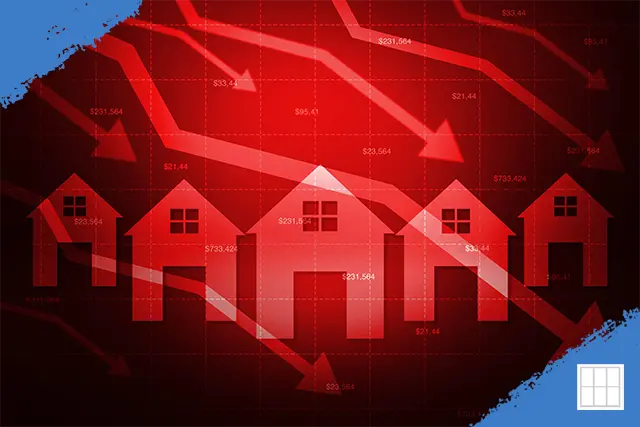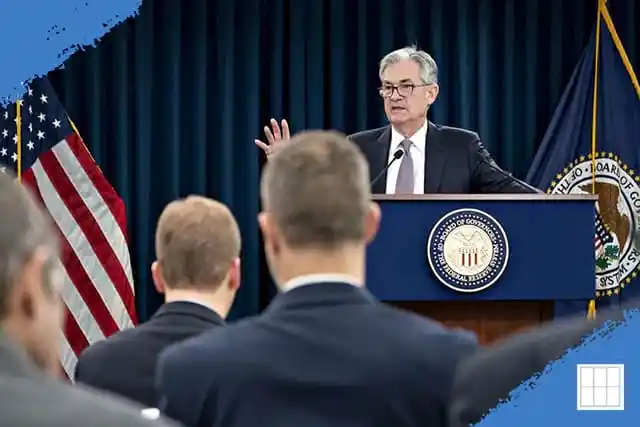Imagine this: You're a Kansas City home buyer scrolling Zillow late at night, dreaming of…

Will Interest Rates Go Down? The Future of Mortgage Rates
Interest rates play a crucial role in the housing market, affecting everything from mortgage rates to the overall cost of buying a home. As a homebuyer or homeowner looking to refinance, understanding the potential direction of interest rates can help you make informed decisions. In this article, we explore the factors that influence mortgage rates and discuss whether they are likely to decrease in the near future.
What Are Interest Rates and Why Do They Matter?
Interest rates represent the cost of borrowing money. When you take out a mortgage, the interest rate determines how much you’ll pay in addition to the principal amount. Lower mortgage rates mean lower monthly payments and overall costs, making homeownership more affordable. Conversely, higher mortgage rates increase the cost of borrowing, potentially limiting your purchasing power.
Historical Trends in Interest Rates
To understand the future of interest rates, it’s helpful to look at historical trends. Over the past few decades, interest rates have experienced significant fluctuations. In the 1980s, rates were exceptionally high, reaching double digits. Since then, rates have generally trended downward, with notable dips during economic downturns and periods of monetary easing by the Federal Reserve.
Factors Influencing Current Interest Rates
Several factors influence current interest rates, including economic indicators, Federal Reserve policies, and global economic conditions.
Economic Indicators
Economic indicators such as inflation, unemployment, and GDP growth play a significant role in determining interest rates. When the economy is strong and inflation is rising, the Federal Reserve may increase rates to prevent the economy from overheating. Conversely, during economic slowdowns, the Fed may lower rates to stimulate growth.
Federal Reserve Policies
The Federal Reserve, or the Fed, is responsible for setting the federal funds rate, which influences short-term interest rates. The Fed’s decisions are based on various factors, including economic data and inflation targets. Changes in the federal funds rate can directly impact mortgage rates.
Global Economic Conditions
Global economic conditions also affect rates. Factors such as international trade tensions, geopolitical events, and economic performance in other countries can influence the U.S. economy and, consequently, mortgage rates. For example, economic instability abroad can lead to lower U.S. rates as investors seek safe-haven assets like U.S. Treasury bonds.
Predictions for Future Interest Rates
Predicting the future direction of interest rates is challenging due to the numerous variables involved. However, many experts believe that mortgage rates may remain relatively low in the near term, given current economic conditions and the Federal Reserve’s cautious approach to rate hikes. Some factors that could influence future rate changes include:
- Inflation Trends: If inflation remains subdued, the Fed may keep rates low to support economic growth.
- Economic Recovery: The pace of economic recovery post-pandemic will play a critical role in determining interest rates. A faster recovery could lead to higher rates, while a slower recovery may keep rates low.
- Global Events: Unexpected global events, such as geopolitical tensions or financial crises, can impact interest rates by affecting investor sentiment and economic stability.
How to Prepare for Potential Changes in Interest Rates
Whether mortgage rates go up or down, it’s essential to be prepared. Here are some tips for homebuyers and homeowners looking to refinance:
Tips for Homebuyers
- Lock in Rates: If you’re in the market for a home, consider locking in your mortgage rate to protect against potential increases.
- Improve Your Credit Score: A higher credit score can help you secure better a better rate. Focus on paying down debt and maintaining a good credit history.
- Shop Around: Compare offers from multiple lenders to find the best rate and terms for your mortgage.
Tips for Homeowners Looking to Refinance
- Monitor Rates: Keep an eye on interest rate trends and refinance when rates are favorable.
- Evaluate Costs: Consider the costs associated with refinancing, such as closing fees, to ensure it makes financial sense.
- Shorten the Term: Refinancing to a shorter-term mortgage can help you pay off your loan faster and save on interest over time.
Conclusion: Making Informed Decisions in an Uncertain Market
While it’s difficult to predict exactly where interest rates will go, understanding the factors that influence them can help you make better financial decisions. Whether you’re buying a home or refinancing an existing mortgage, staying informed and prepared can help you navigate the complexities of the housing market.
By keeping an eye on economic trends, Federal Reserve policies, and global events, you can make more informed decisions about your mortgage. Remember, the key to success in any market is preparation and education.



